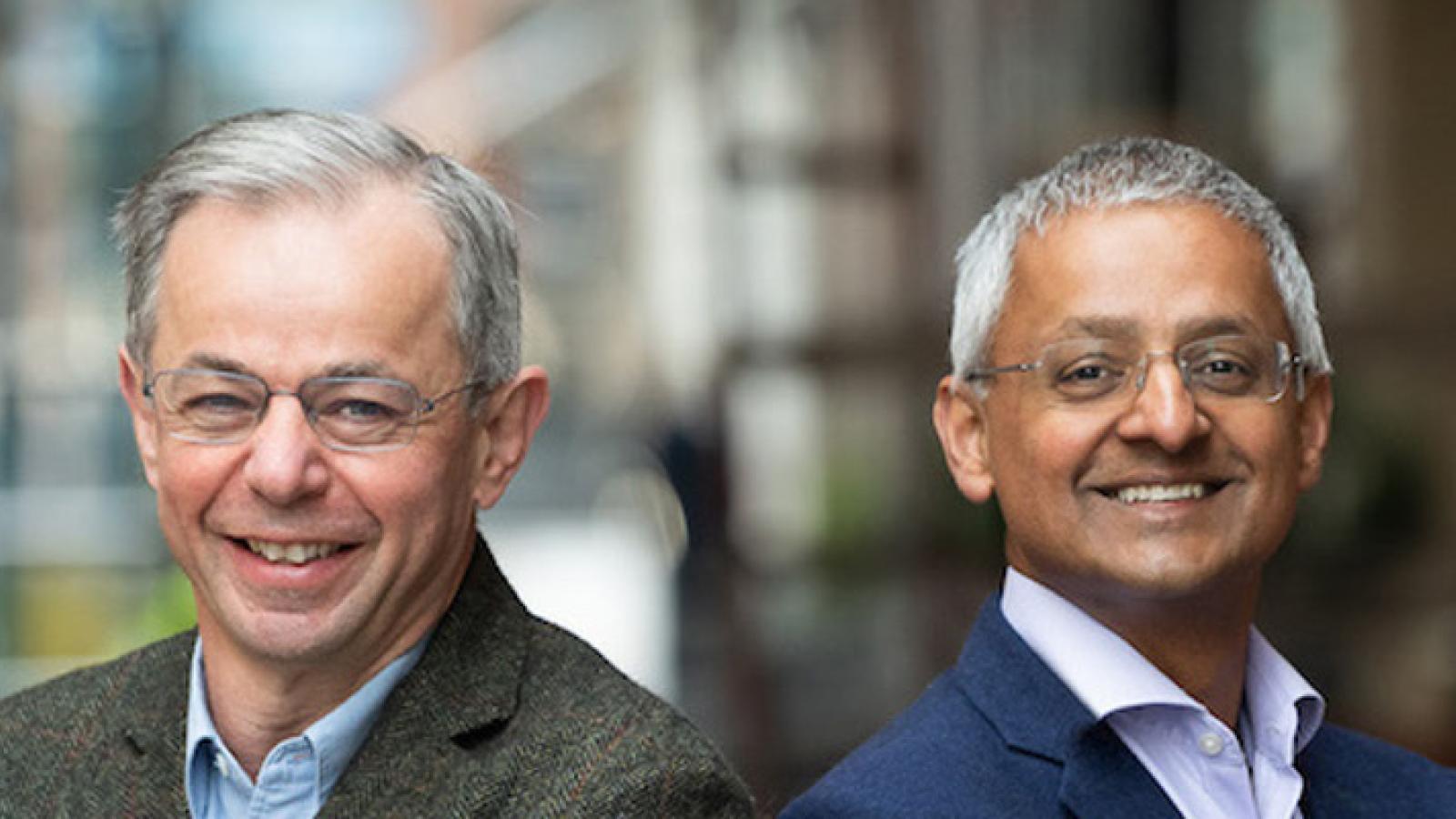Prof Sir David Klenerman, UK DRI Group Leader at Cambridge, and Prof Sir Shankar Balasubramanian have been awarded the 2020 Millennium Technology Prize for their development of Next Generation Sequencing (NGS). The technology has been transformational for the fields of genomics, medicine and biology, significantly reducing the time and cost associated with sequencing a human genome.
Professors Klenerman and Balasubramanian and co-invented the Solexa-Illumina Next Generation DNA Sequencing in a collaboration that started in 1994. The technology has enhanced our basic understanding of life, converting biosciences into “big science” by enabling fast, accurate, low-cost and large-scale genome sequencing – the process of determining the complete DNA sequence of an organism's make-up. In 1998, the pair filed several key patents and co-founded Solexa Ltd. The first human genome to be sequenced using the technology was published that year.
In 2000, sequencing of one human genome took over 10 years and cost more than a billion dollars. The NGS technology improved this a million-fold and today, the human genome can be sequenced in one day at a cost of $1k and more than a million human genomes are sequenced at scale each year. Ultimately, this means we can understand diseases much better and much more quickly, including recent efforts against new variants of Covid-19 and our immune reaction to them.
<p>Approximate current cost to sequence a human genome today</p>
We are delighted and honoured to be the tenth recipients of the Millennium Technology Prize. This is the first time we've received an international prize that recognises our contribution to developing the technology – but it's not just for us, it's for the whole team that played a key role in the development of the technology and for all those that have inspired us on our journey.Prof Shankar Balasubramanian and Prof David Klenerman
Presented every second year by Technology Academy Finland (TAF), The Millennium Technology Prize is a global one-million-euro award presented in honour of a pioneering technological innovation that improves people’s quality of life and promotes sustainable development. This is the first time that the prize has been awarded to more than one recipient for the same innovation, celebrating the significance of the collaboration. The announcement of the 2020 award was delayed due to the Covid-19 pandemic.
How it works
The NGS method involves fragmenting sample DNA into many small pieces that are immobilised on the surface of a chip and locally amplified. Each fragment is then decoded on the chip, base-by-base, using fluorescent nucleotides added by an enzyme. By detecting the colour-coded nucleotides incorporated at each position on the chip with a fluorescence detector – and repeating this cycle hundreds of times – it is possible to determine the DNA sequence of each fragment.
The collected data is then analysed using sophisticated computer software to assemble the full DNA sequence from the sequence of all these fragments. The NGS method’s ability to sequence billions of fragments in a parallel fashion makes the technique fast, accurate and very cost-efficient. The invention of NGS was a completely revolutionary and novel approach to the understanding of the genetic code in all living organisms.
Impact on wider healthcare and diagnostics
NGS technology has revolutionised global biological and biomedical research and has enabled the development of a broad range of related technologies, applications and innovations. Due to its efficiency, NGS is now being widely adopted in healthcare and diagnostics, such as cancer, rare diseases, infectious medicine, and sequencing-based non-invasive prenatal testing.
It is increasingly used to define the genetic risk genes for patients with a rare disease and is now used to define new drug targets for novel therapies for common disease in defined patient groups. NGS has also contributed to the creation of new and powerful biological therapies like antibodies and gene therapies.
Academy Professor Päivi Törmä, Chair of the Millennium Technology Prize Selection Committee, said:
“The future potential of NGS is enormous and the exploitation of the technology is still in its infancy. The technology will be a crucial element in promoting sustainable development through personalisation of medicine, understanding and fighting killer diseases, and hence improving the quality of life. Professor Balasubramanian and Professor Klenerman are worthy winners of the prize.”
Article published: 27 May 2021
